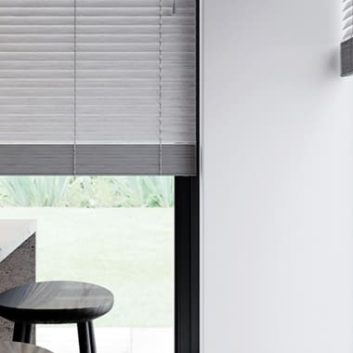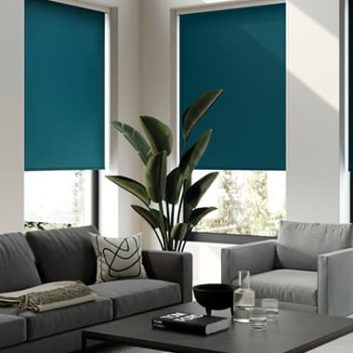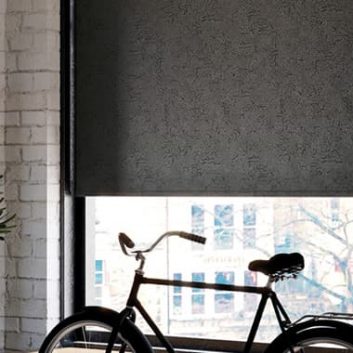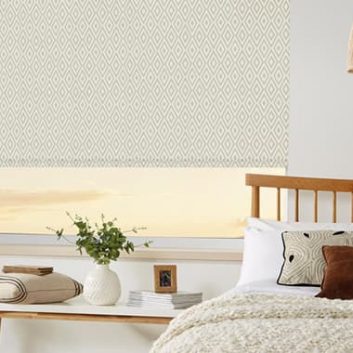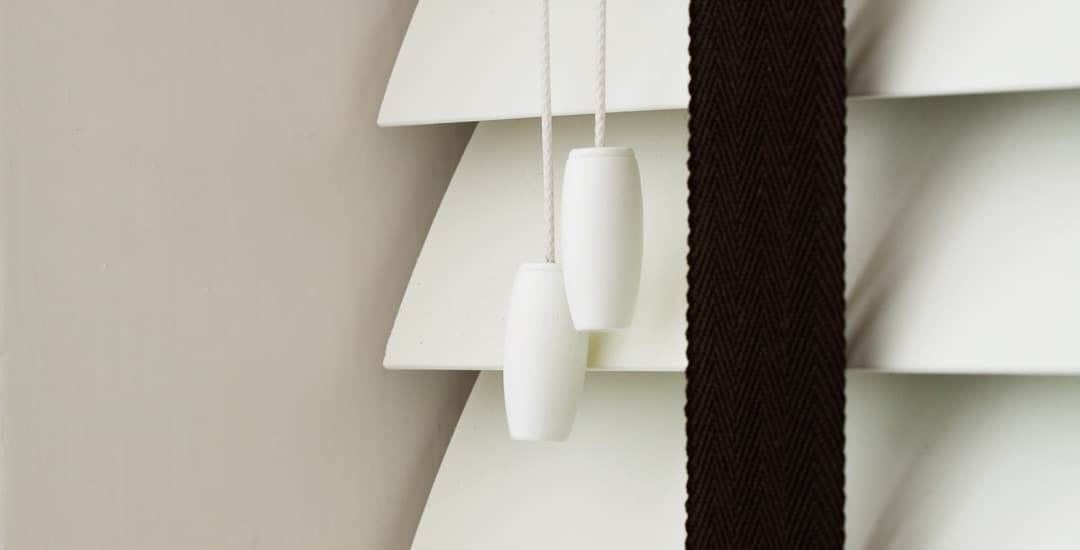
No, not if you buy good quality ones and use them in the appropriate type of rooms/environments; but if you use real wooden blinds in rooms that are subject to a lot of humidity, condensation, or water (like the bathroom or kitchen) they might indeed develop mildew or grow mould over the longer term.
It is important to choose the right blinds for the right room so that your blind stays looking good and performing well for its whole theoretical lifespan… This means that if you suspect that the room you’re shopping for may be prone to damp or if it’s the type of room that will inevitably generate a lot of atmospheric moisture due to the presence of water, wooden blinds probably won’t be the best choice.
If you do have your heart set on wooden blinds but think your room might have other ideas, the other option to consider is faux-wood blinds, which look very much like the real thing but that are also waterproof.
This blog post will tell you everything you need to know about why wooden blinds might grow mould and mildew, and how to prevent this from happening.
Do wooden blinds go mouldy in general use?
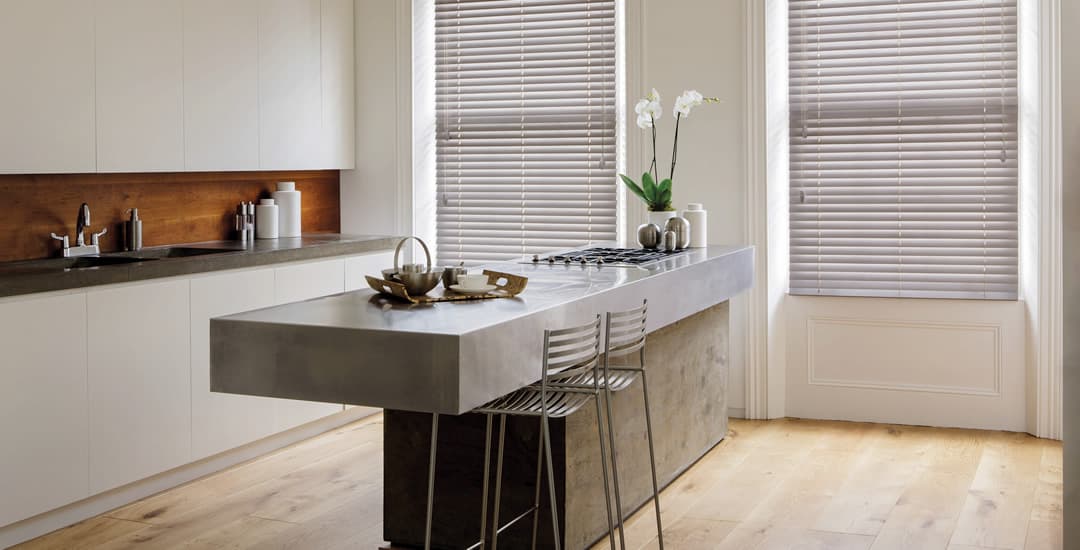
No, not in a normal/dry room like a lounge or bedroom. It is not inevitable that wooden blinds would grow mould in some kitchens or bathrooms either, if said rooms are very well ventilated and don’t tend to get steamed up when in use.
Even so, we don’t recommend wooden blinds (real wood blinds) as the best choice for “wet” rooms of the home, as wooden blinds are a luxury product and so, can be quite pricey, which you will no doubt remember down the line if you find that you made the wrong choice!
Good quality made-to-measure wooden blinds are coated with a surface treatment to resist the growth of mould and mildew caused by damp, because we know that all homes have some level of atmospheric moisture and that you can’t keep your blinds in a hermetically sealed chamber to protect them from this!
This coating is highly effective, and will remain viable to protect your blinds for many years; our wooden blinds are designed to last for at least a decade of normal usage, and often last for considerably longer than this in regular use too.
Do wooden blinds go mouldy in damp homes or rooms?
Yes they will eventually; although how long this takes to happen can be quite variable and depends on both the blind and the room that it’s in. Obviously the damper the room or home is, the faster a blind will start to host alternative life forms; particularly if the room never gets the chance to air or dry out and the blind remains more or less permanently damp.
Mould and mildew growth won’t be your only potential problems in this sort of situation either. Exposure to damp of a significant level will eventually cause a real wooden blind’s slats to bow or warp too.
As I say, the sort of timeframe you’re looking at for potential problems to develop can range from just a few months to many years; and if you buy readymade/cheap wooden blinds, these aren’t likely to be very sturdy to begin with and probably won’t have been coated with a mould and mildew-resistant layer, and so problems are apt to develop sooner rather than later.
Why do wooden blinds go mouldy?
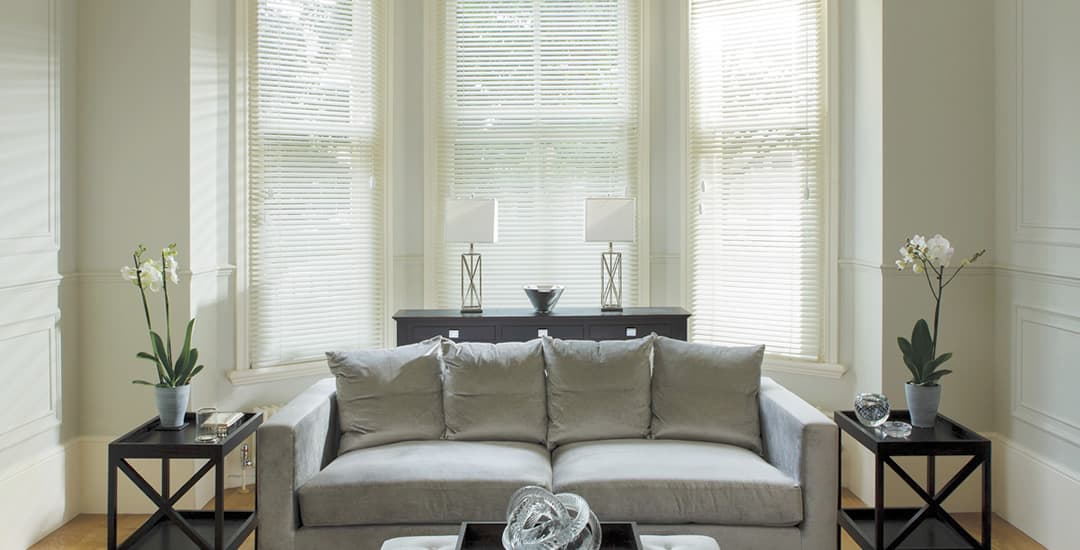
Ultimately if wooden blinds do go mouldy or develop mildew, this is because wood is a natural material and as such, is organic and to a degree porous, and capable of supporting life; albeit “life” of the fungal kind rather than anything a bit more sci-fi or exotic.
How much of a problem is it if my wooden blinds go mouldy/grow mildew?
This is something that most of us will be keen to avoid for multiple reasons. Not only will a film of mould or mildew on the blind ruin its appearance to a degree, but it is also likely to imbue your room with that signature damp mouldy or mildew-like smell that most of us recognise instantly.
Also, inhaling fungal spores can be harmful for both people and pets, plus the sort of dampness that results in mould growth on a blind will also as I mentioned, possibly warp the blind’s slats too.
Can I prevent wooden blinds from growing mould or mildew?
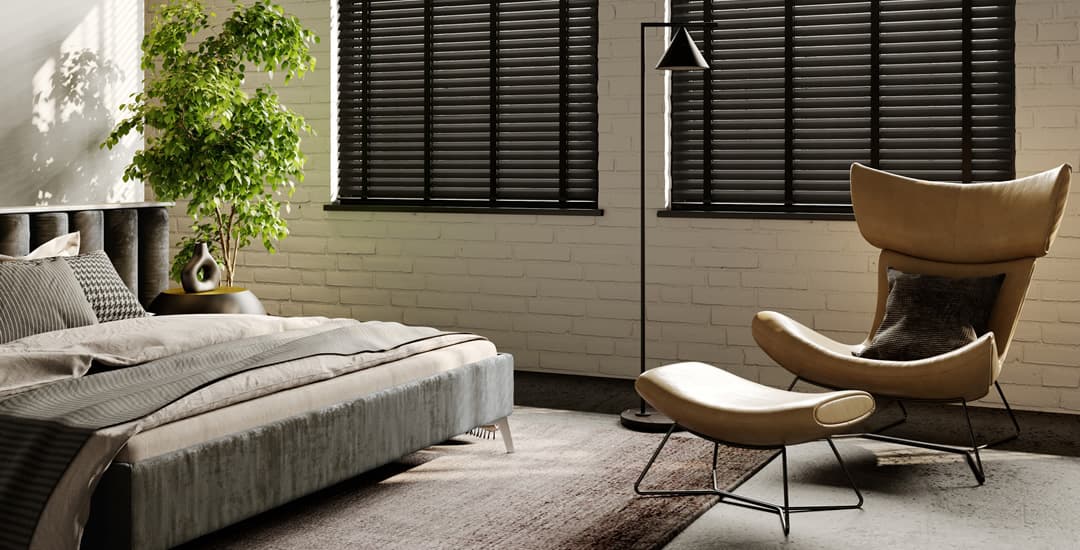
There are certainly steps you can take to greatly reduce the chances of your wooden blinds growing mould or mildew, depending on what you’re dealing with. The first of these is to only buy wooden blinds for “dry” rooms, and to choose another type of blind for rooms that are prone to condensation or getting steamed up.
However, if you live in a region with high levels of humidity in general, you might want to consider using dehumidifiers to maintain the atmospheric moisture in your rooms at a less tropical level for both yourself, and to protect your furniture and fittings like blinds too.
Finally, whatever sort of room you’re buying wooden blinds for, always invest in good quality made-to-measure ethically produced real wood blinds, which have been treated with a mould-resistant coating as standard.

